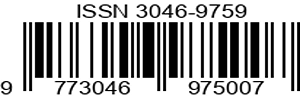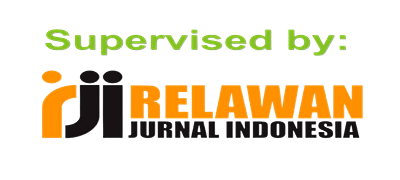Publication Ethics
JETLING Journal is committed to upholding the highest standards of publication ethics in order to promote trust, transparency, and integrity in academic publishing. The journal adheres to ethical practices throughout the submission, review, and publication processes. We expect authors, reviewers, and editors to comply with the following ethical guidelines to ensure the quality and reliability of the research we publish.
Authorship and Contribution
- All authors listed on a manuscript must have made significant contributions to the research and writing process. Contributions should be clearly stated in the manuscript.
- All co-authors must approve the manuscript before submission and confirm their participation in the research.
- Authors must disclose any financial or non-financial conflicts of interest that could influence the research or its interpretation.
- Plagiarism, self-plagiarism, or the submission of previously published work as new will not be tolerated. Authors must ensure that their work is original and properly referenced.
Peer Review and Confidentiality
- Manuscripts submitted to the journal undergo a double-blind peer review process to ensure impartiality, fairness, and academic rigor.
- Reviewers are expected to assess manuscripts based on their academic merit, clarity, and relevance to the journal’s scope. Reviews should be constructive and free from bias.
- Reviewers must keep all information regarding the manuscript confidential and not use the content for personal gain or share it with third parties.
- Authors should not approach reviewers for personal feedback on the review process.
Data and Research Integrity
- Authors must ensure the accuracy of the data presented and report it honestly, without fabrication, falsification, or selective reporting.
- Any ethical concerns or misconduct related to data, such as manipulation or inappropriate data collection methods, will result in the manuscript being rejected.
- If errors are identified post-publication, authors must promptly notify the journal, and the necessary corrections or retractions will be made to maintain the integrity of the academic record.
Conflict of Interest
- Authors, editors, and reviewers must disclose any financial, personal, or professional relationships that could influence their work.
- Any conflicts of interest should be clearly stated during the submission and review stages to ensure transparency and avoid bias.
Editor’s Responsibilities
- Editors are responsible for ensuring a fair and unbiased editorial process. They must evaluate manuscripts based on their quality and relevance, not personal or professional interests.
- Editors should recuse themselves from handling submissions where they have conflicts of interest and ensure the confidentiality of all submitted materials.
- The final decision to accept or reject a manuscript lies with the editor, in consultation with the editorial board and based on the peer review process.
Publication and Post-Publication Corrections
- The journal is committed to ensuring that any errors identified after publication are corrected promptly. Corrections, clarifications, and retractions will be made as necessary to maintain the integrity of the published record.
- Authors are encouraged to notify the editorial team of any mistakes or discrepancies they discover in their work, and the journal will take appropriate steps to address them.
Publisher’s Role
- The publisher ensures that the journal operates in compliance with ethical guidelines and supports the editorial team in enforcing publication ethics.
- The publisher is responsible for ensuring the proper handling of manuscripts, adhering to ethical standards, and ensuring transparency in the publication process.




